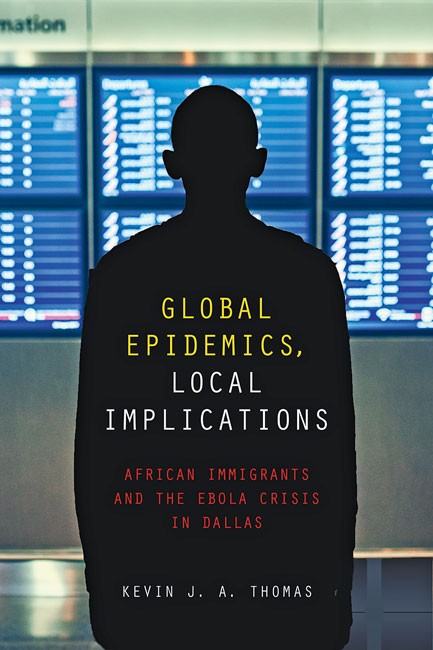In December 2013, a series of Ebola infections in Meliandou, Guinea, set off a chain of events culminating in the world's largest Ebola epidemic. Concerns about the virus in the United States reached a peak when Thomas Duncan, a Liberian national visiting family in Dallas, became the first person to be diagnosed with Ebola and die of the disease on US soil.
In Global Epidemics, Local Implications, Kevin J. A. Thomas highlights the complex ways in which disease outbreaks that begin in one part of the world affect the lives of immigrants in another. Drawing on information gleaned from a community survey, participant observations, government documents, and newspapers, Thomas examines both how African immigrants were negatively affected by the backlash they received from the public and their agency and resilience in responding to the consequences of epidemic.
Thomas describes how racial and ethnic stereotypes identified African immigrants as targets of stigma during everyday interactions. He demonstrates how these immigrants pushed back by drawing on the strength of their community. Ultimately, Global Epidemics, Local Implications shows how these responses, which include local efforts to curb the spread of Ebola in Dallas and their international efforts to fight against the disease in West Africa, underscore the importance of immigrant resources for developing public health interventions.

